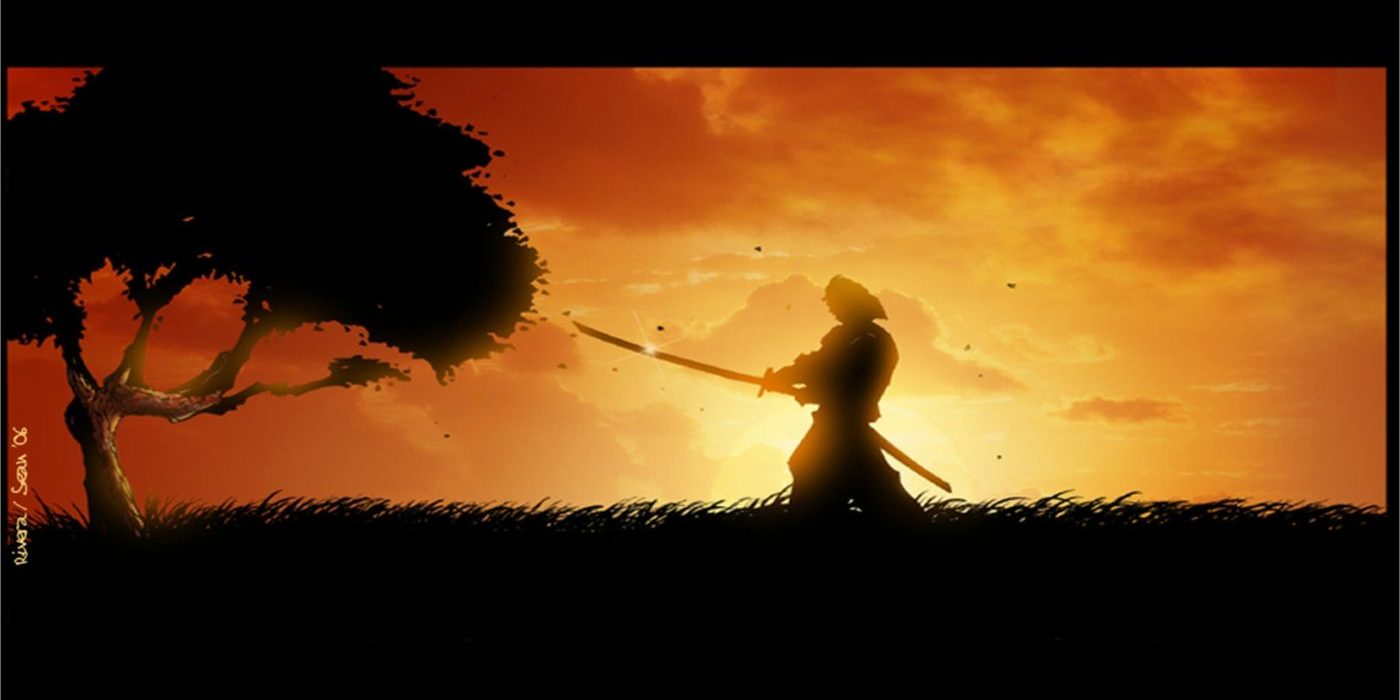Miyamoto Musashi was a legendary Japanese swordsman, philosopher, and writer who became famous and loved, simply because of his renowned stories and excellent double-bladed swordsmanship. He had won 61 duels in his lifetime, a record unbeaten to this day, with only Ito Ittosai coming close with a mere 33 duels won! In his final years, he penned The Book of Five Rings and Dokkodo – with characters based on the school of Niten-Ichi-Ryu – a swordsmanship school that Masashi himself founded in is prime. He was not only a fighter and legendary samurai, however, he was a philosopher, which many people decided to follow.
Even today, if you ask any Japanese martial artist, who the greatest warrior was of all time, they’ll probably say Musashi. In most people’s minds, there is no better fighting man, both before and after Musashi time (1584-1645) as he killed more enemies than any samurai before or after him, and also documented his thoughts and wisdom so well that his name was never forgotten.

His books not only work as a training manual to young upcoming swordsmen but also includes a plethora of between-the-lines observations and advice about life and philosophy that drew people in, whether they knew it or not. It captures the old warrior’s observations about the world around him and conveys the lessons needed to be learned to ensure your survival – after all, he survived an age with all the duels he fought and won.
What was unique about Musashi is that he lived to an old age, meaning that he could retire and relax in the knowledge that he need never fight again. The fact that he was never killed in battle and never needed to battle again meant that he was fine with sharing his secrets and penning his theories and lessons, comfortable in the knowledge that nobody could use his secrets against him as he was a finished man already. Perhaps more samurai would have done the same if they had lived to tell the tale, quite literally!

Although his work is very date, his lessons still stand true today, where samurai swords have all been replaced by knives and handguns. His books were divided into five parts: Ground, Water, Fire, Water, and Void.
“Know the smallest things and the biggest things, the shallowest and the deepest things as if they were a straight road mapped out on the ground,” Musashi wrote. His meaning is clear: Success in combat requires planning. This was part of his Ground-work so to speak and is a lesson frequently learned early in a martial artist’s training.
In the second section of his treatise, Musashi wrote: “Water adopts the shape of its receptacle. It is sometimes a trickle and sometimes a wild sea. Water has a clear blue color. By the clarity, things of [my] school are shown in this book.” What he is trying to portray here is the necessity to be adaptable in a fight. Like water, a warrior needs to adapt and fill the space given to him and be able to change course at a moment’s notice.
“This book is about fighting,” Musashi wrote. “The spirit of fire is fierce, whether the fire is small or big. And so it is with battles.” The Fire section of his books focuses on the power and ability of a fighter. There is an importance to ferocity, but it must be controlled. You don’t need to be as on edge as Musashi was (times have changed for one, and the risk of being beheaded in your sleep is considerably less these days) but you get the picture. In his time, people trained to die, so in the 21st century we should adopt that desire to fight to the death to help channel our aggression and power, but manage it in a controlled and more modern way.

“In strategy, you must know the ways of other schools, so I have written about various other traditions of strategy in this, the Wind Book,” said Musashi. Much of his study is about the ways of other martial arts and the traditions that many of his advisories followed. These different traditions could cause problems in a fight if one is not prepared to fight a plethora of fighting styles, so like the wind, you must be able to travel far and wide, touching and affecting the traditions and styles from across the globe.
Musashi wrote: “To attain the way of strategy as a warrior, you must study other martial arts and not deviate even a little from the way of the warrior. With your spirit settled, accumulate practice day by day, and hour by hour. Polish the twofold spirit [of] heart and mind, and sharpen the twofold gaze [of] perception and sight. When your spirit is not in the least clouded, when the clouds of bewilderment clear away, there is the true void.”
Here Musashi focuses on the ‘void’ or the ‘spiritual’ side of martial arts and self-defense. The mental is the spiritual and the technical is how to manage the techniques you know. There is nothing worse than knowing so many techniques you get lost or begin to fight in an unnatural, overemphasized way. Today, logic and custom is key to being a good fighter, and Musashi (despite living hundreds of years ago) is still very relevant today. Maybe that is why he is still seen as one of the biggest Samurai Legends of all time, and rightly so.
How familiar were you with Mushashi before?






